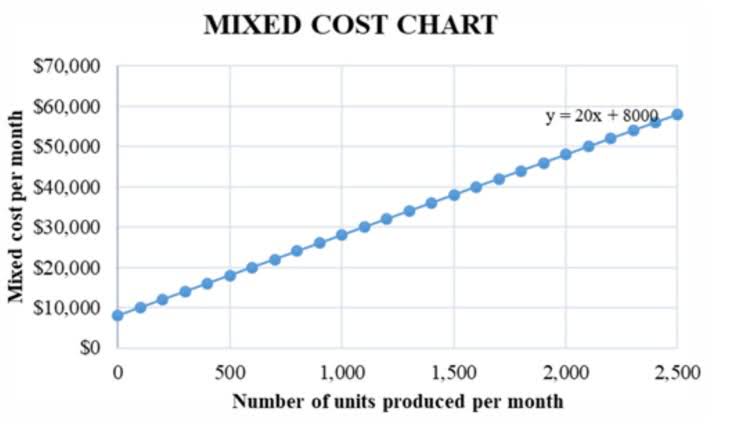
On the other hand, major economic factors, such as inflation and interest rates, can have a similar effect on the stock and bond markets. High inflation tends to have a negative impact on fixed-income and equity returns as prices adjust to higher real rates, although the magnitude can be different. The real value of bonds’ return streams is directly reduced by higher inflation, as higher real rates cause their prices to fall. Likewise, companies’ share prices usually decline, despite expectations that cash flows may eventually grow alongside inflation.

The Risk-Return Profiles of Bonds Versus Shares
Below, we will discuss stocks, bonds, and the differences between them. If you’re looking to learn how to grow — and protect — your wealth, this article should answer a lot of your questions. For the past seven years, Kat has been helping people make the best financial decisions for their unique situations, whether they’re looking for the right insurance policies or trying to pay down debt. Kat has expertise in insurance and student loans, and she holds certifications in student loan and financial education counseling. The company pays you interest, and once the bond matures, you get your principal bank. In Canada, the main stock exchange is the Toronto Stock Exchange (TSX), and in Europe, there is the Euronext and the London Stock Exchange.
What are Equities?
- With stocks, you pay capital gains taxes when you sell a stock at a profit and on any dividends you receive.
- You could also earn dividends if the company distributes a portion of its earnings to stockholders.
- However, you’ll receive regular interest payments over that period.
- Despite having a maturity of up to 30 years, some bonds can be paid off early.
- But, when measured in years, the biggest measure of a stock’s value is the company’s growth of earnings per share.
The offers that appear on this site are from companies that compensate us. But this compensation does not influence the information we publish, or the reviews that you see on this site. We do not include the universe of companies or financial offers that may be available to you. Duration is, generally, a more accurate measure for small changes in interest rates. For larger interest rate changes, other factors may also impact a bond’s price. Northwestern Mutual financial advisors will build a personalized investment plan designed to help you reach your goals.

The Bond Market
This stems from various factors, such as inflation’s impact on real earnings growth, increasing equity risk premiums, or investors’ behavioral biases. Higher interest rates, which often come in response to higher inflation, also increase the discount rate of future cash flows, which reduces the prices of both bonds and equities. A stock is an equity representing ownership, or shares, of a company, making the investor a shareholder and entitling them to a portion of that company’s profits. Public companies sell their stock through a stock market exchange to raise money for their business. They can make money when the stock price increases and they sell at a profit, or through dividends if a stock pays dividends.
- They provide portfolio diversification, so they’re an acceptable option for passive, hands-off investors.
- In return for the loan, the company will pay the investor interest, usually on a semiannual basis.
- As such, individual investors do not typically participate in the bond market.
- Instead of investing these profits in growth, they often distribute them among shareholders — this distribution is a dividend.
- Stocks are bought and sold predominantly on stock exchanges and are the foundation of many individual investors’ portfolios.
Back in October 2007, the 10-year yield was 4.7% when the forward dividend yield on the S&P 500 was 1.9%. The stock market stayed pretty consistent; it’s the bond market that changed. It’s important for investors to understand that stocks and bonds accomplish different things in an asset allocation. difference between stocks and bonds They both have a place, though in different weightings, which change over time. Equities are often key to help investors keep pace with inflation over the long-term. The basic idea behind a stock is that an entity needs to raise money and can sell stocks or shares in return for the required funds.
How Can You Earn Income from Owning Stock?
Investors can also get more specific details about bond offerings through their brokerage accounts. Generally, bonds are best for those that are conservative and nearing retirement age. They provide steady, reliable income and have relatively low levels of risk. Sannihitha Ponaka is an MBA graduate from Symbiosis and has more than 5 years of experience in the financial sector. Following her dreams in the field of finance, she leverages writing to communicate the importance of investing.
Risk with Stocks and Bonds
In an IPO, a company is basically selling a part of itself for cash. After the IPO, investors and traders can then buy and sell the company’s shares on the stock market. Both stocks and funds can return money to investors through dividend https://www.bookstime.com/articles/payroll-taxes payments, which are usually paid out quarterly. There are many adages to help you determine how to allocate stocks and bonds in your portfolio. One says that the percentage of stocks in your portfolio should equal 100 minus your age.
Optimizing Returns Across Changing Macroeconomic Environments – KKR
Optimizing Returns Across Changing Macroeconomic Environments.
Posted: Thu, 12 Oct 2023 09:40:18 GMT [source]
How to Compare Common and Preferred Stock
Stocks are sold on stock exchanges, such as the Nasdaq or the New York Stock Exchange. They offer the greatest potential for growth, but they also come with significant risk. Stock prices can drop significantly in a short time, so it’s possible to lose money investing in stocks. A bond is one of the fixed income investment products that represents a loan given to a borrower by the investors. The investors get interest income in return for the money they lent. A bond includes details of the loan like the date when the principal payment is due, the interest and the terms of interest payments.
